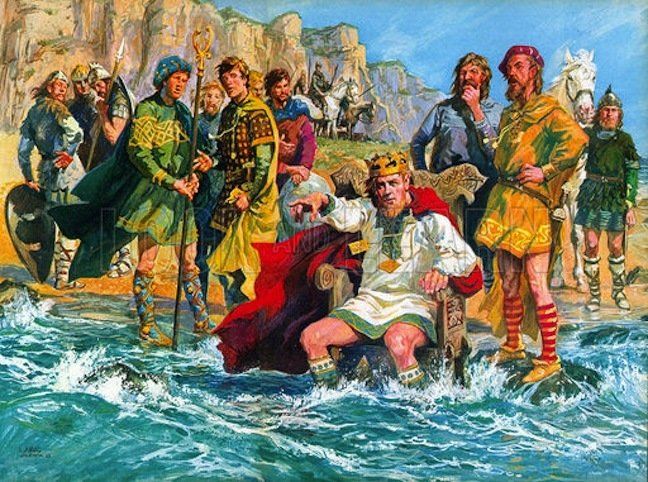Life On the Rocks
King Canute and Climate Change

RECENTLY, I happened to be volunteering in a Republican call center where young high school students were visiting on a field trip to discuss the candidates running for election in the recent American presidential election (2016). They were uniformly well-behaved young people, well dressed, attractive and alert. They asked the same tired, old political questions that had been repeatedly canvassed over the last year or so, receiving the same tired, boilerplate answers. But the event did give the students a chance to formulate a coherent question and speak in front of a group, which seemed to me a very worthwhile experience, no matter the triteness of the subject matter.
But, near the end, one student asked a question, and the way she phrased the question provided a startling glimpse into her mind and that of her fellow students and even of the political representatives who were there to respond.
This young lady wondered what the candidates were going to do about climate change. The politicians present preceded to list various measures they advocated to deal with climate change. It was like a game of charades, except it wasn't.
That a high school student could honestly believe that politicians can control the climate was shocking. How could these seemingly intelligent young people be so naïve and gullible as to actually believe that government controls the climate? That the adults who were in charge, who presumably should and do know better, told the young woman their plans to control climate change was like watching theater of the absurd. Please, someone tell the children, politicians do not control the climate.
Then I remembered King Canute and the waves. Canute was the King of the North Sea empire, which included Denmark, England and Norway, from 995 to 1035 AD.
From Wikipedia:
"In the narrative, Canute demonstrates to his flattering courtiers that he has no control over the elements (the incoming tide), explaining that secular power is vain compared to the supreme power of God. The episode is frequently alluded to in contexts where the futility of "trying to stop the tide" of an inexorable event is pointed out.”
“In Huntingdon's account, Canute set his throne by the seashore and commanded the incoming tide to halt and not wet his feet and robes. Yet, continuing to rise as usual [the tide] dashed over his feet and legs without respect to his royal person. Then the king leapt backwards, saying: 'Let all men know how empty and worthless is the power of kings..."
Over a thousand years later, we ought to know that, even today, with all its scientific marvels, no power on earth, manmade or otherwise can do something as simple as halt the tides, much less change the climate.
I am reminded of a quote by that frighteningly cynical journalist, H. L. Mencken who said:
"The whole aim of practical politics is to keep the populace alarmed (and hence clamorous to be led to safety) by menacing it with an endless series of hobgoblins, all of them imaginary."
I suppose climate change is a wonderfully effective series of imaginary hobgoblins to menace the public with and capable of providing the necessary alarm so that a politician can lead them to safety by voting his or her party into power. Does that make me as cynical as H. L. Mencken? I sincerely hope not quite that cynical.